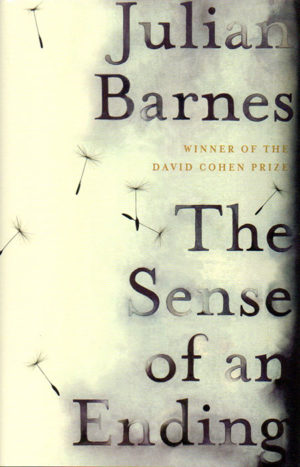As I’ve just discovered, it’s never too late to read this brilliant Booker Prize Winner from 2011. Before you see the film, just out in the cinema in the UK, read this marvel of a book about interpreting the past, suppressing memories and coming of age. It’s a book that will make you question your own past and wonder how differently others might perceive it.
Our narrator, retired divorcee Tony Webster, lives a quiet life. He reflects back on his school days at a London boy’s school and his close-knit group of friends, in particular Adrian Finn, who stood out with his extraordinary intellect. Tony and Adrian fell out over a girl and things went badly for Adrian, but Tony has never really understood why, at least that’s what he tells himself…
One day, a letter from a lawyer arrives that will change everything and seriously challenge Tony’s version of events. Revealing more about the story will spoil it, so I won’t.
Tony and his friends are rich on academic education, less so on emotional understanding. In true stiff upper lip fashion, issues are swept under the carpet rather than dealt with. Our narrator is, by his own admission, highly unreliable. But life has thought him that a carefully constructed version of the past can secure him the quiet, predictable life he wants. At least until someone else’s version of events crop up.
Barnes’ sharp, sparse prose is pure joy. So much is said, with few words, yet the characters and events are crystal clear to us. The ending will leave you baffled and surprised, as it has many other readers. Online discussions about how to interpret it are rife. Barnes seems to be teasing his readers, creating multiple possible versions, which bring us back to the question: whose account of history is true, if any?
Or as Adrian would have put it:
History is that certainty produced at the point where the imperfections of memory meet the inadequacies of documentation.
The Sense of an Ending is published by Vintage Books, 150 pages.





